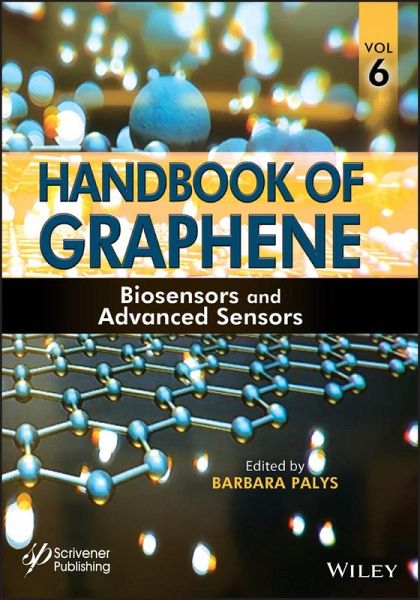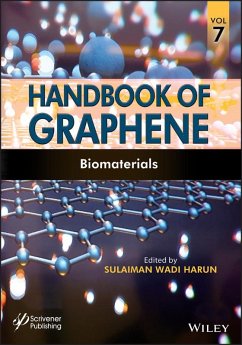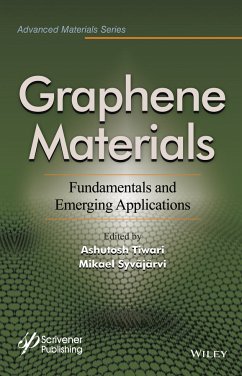
Handbook of Graphene, Volume 6 (eBook, ePUB)
Biosensors and Advanced Sensors
Redaktion: Palys, Barbara
Versandkostenfrei!
Sofort per Download lieferbar
233,99 €
inkl. MwSt.
Weitere Ausgaben:

PAYBACK Punkte
0 °P sammeln!
The sixth volume in a series of handbooks on graphene research and applications The Handbook of Graphene, Volume 6: Biosensors and Advanced Sensors discusses the unique benefits that the discovery of graphene has brought to the sensing and biosensing sectors. It examines graphene's use in leading-edge technology applications and the development of a variety of graphene-based sensors. The handbook looks at how graphene can be used as an electrode, substrate, or transducer in sensor design. Graphene-based sensor detection has achieved up to femto-levels, with performances delivering the advantag...
The sixth volume in a series of handbooks on graphene research and applications The Handbook of Graphene, Volume 6: Biosensors and Advanced Sensors discusses the unique benefits that the discovery of graphene has brought to the sensing and biosensing sectors. It examines graphene's use in leading-edge technology applications and the development of a variety of graphene-based sensors. The handbook looks at how graphene can be used as an electrode, substrate, or transducer in sensor design. Graphene-based sensor detection has achieved up to femto-levels, with performances delivering the advantages of greater selectivity, sensitivity, and stability.
Dieser Download kann aus rechtlichen Gründen nur mit Rechnungsadresse in A, B, BG, CY, CZ, D, DK, EW, E, FIN, F, GR, HR, H, IRL, I, LT, L, LR, M, NL, PL, P, R, S, SLO, SK ausgeliefert werden.













